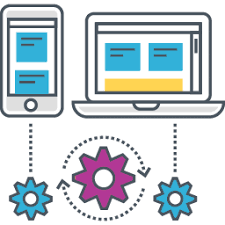It will not be an exaggeration to say that in this technologically driven era where the usage of the internet is extremely high and almost everyone has a smartphone; there are innumerable mobile apps for everything. Mobile apps have indeed become an integral part of our lives as they enable us to communicate, shop, play, bank, and do a lot of other things quickly and conveniently.
However, the other side of this one-click convenience is the hitches in browsing security and data privacy. But then if there are problems, there are solutions as well. If you are thinking of launching a mobile app for your customers or otherwise indulged in the job of creating mobile apps, this blog can help you to know about the best practices for mobile app security and data privacy.
Let’s help protect the sensitive information of the users and maintain a secure digital environment with the tips below given by the experts of an experienced ecommerce app development company.
Secure Authentication Mechanisms
The foremost step must be to implement strong authentication mechanisms as these are responsible for preventing unauthorized access to mobile apps. Prompt your users to use strong login passwords. You can enforce password complexity rules and implement multi-factor authentication (MFA) for an added layer of security. MFA like biometrics (fingerprints or facial recognition) will strengthen verifying user identities.
Data Protection Encryption
Encryption is a powerful measure to make your mobile apps secure for the users. This is usually about using SSL/TLS (Secure Sockets Layer and Transport Layer Security) protocols. Personal information, passwords, financial details, and other sensitive info should be encrypted both in transit and at rest. This will ensure that even if the data is intercepted, it remains unreadable and unusable to unauthorized parties.
Secure Communication Channels
It is highly significant to ensure that your mobile app communicates with servers and external APIs securely. For this, you must implement communication protocols such as HTTPS to encrypt data transmission and prevent unauthorized interception or tampering. Also, audit the APIs frequently and other services used by the app to ensure the utmost security and integrity.
Regular Updates and Bug Fixing
One of the common mistakes that lead to safety compromises in a mobile app is that the developers sideline the importance of bug fixing. So, always ensure that the developer introduces new features, regular updates, and bug fixes timely to promptly address security vulnerabilities. Regular updates will ensure that the app is protected against the latest threats, providing an enhanced level of security to users.
Conclusion
Mobile app security and data privacy are of paramount importance in today’s digital landscape. You can also include other measures like securing data storage through secure keychains. Avoid storing unnecessary information to minimize the potential impact of a data breach. It is only by adopting these practices that mobile app developers can mitigate potential risks, protect user information, and build trustworthy apps. Seek help from experienced and knowledgeable professionals at a good ecommerce app development company to include more robust and security features in your mobile app.



0 Comments